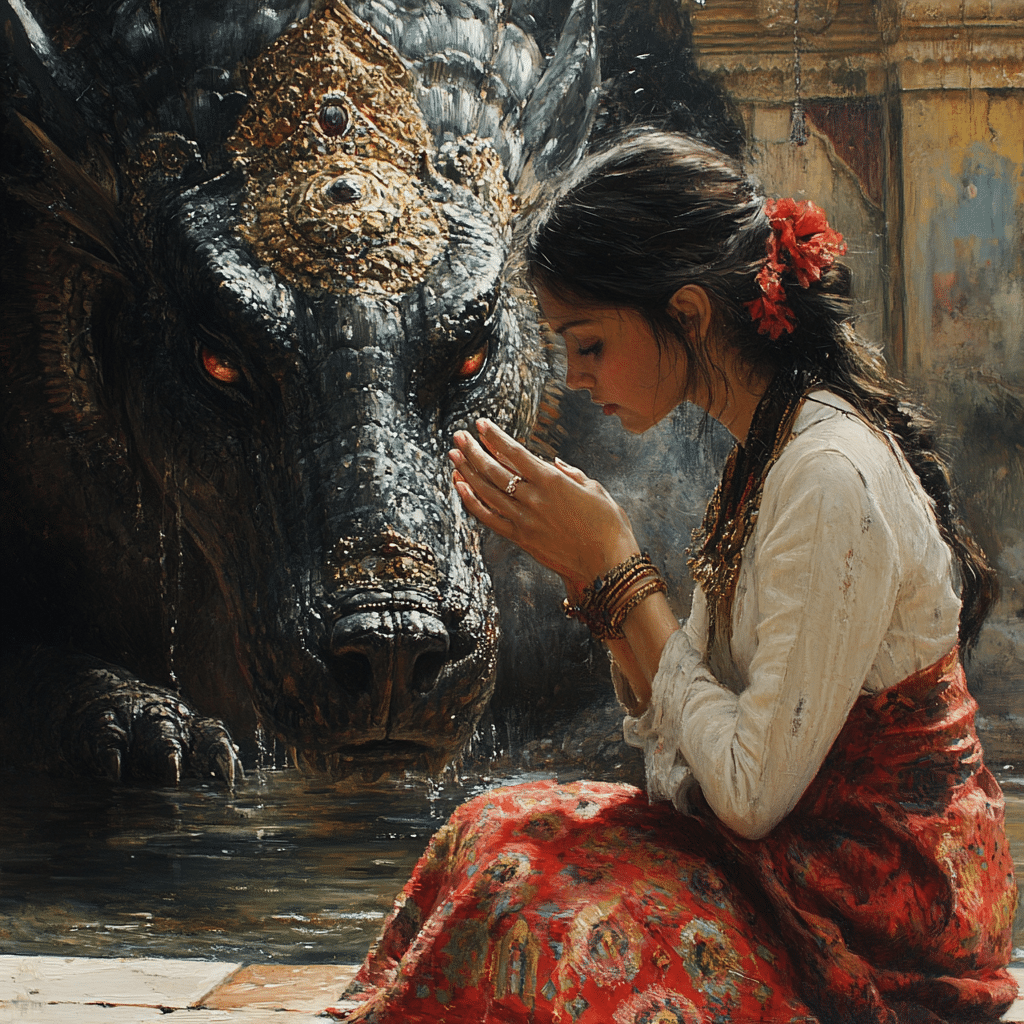The Rise and Fall of ‘Devotion Game’
The Taiwanese horror game ‘Devotion Game’ took the gaming world by storm upon its release in 2019. Developed by Red Candle Games, this adventure game quickly earned praise for its compelling narrative, atmospheric design, and unique horror elements. However, the game’s journey was cut short when a controversial Easter egg referencing Chinese President Xi Jinping led to its removal from major platforms like Steam just days after its debut. This incident not only dealt a severe blow to Red Candle Games but also highlighted the thin line between creative freedom and political sensitivity in today’s digital landscape.
Red Candle Games had conducted extensive research to integrate various religious rites and folk customs into the game’s design. The game’s story unfolds within an apartment complex where Feng-yu and his family live, with each level representing a different year. Players can switch between these levels through the lobby, offering a layered, narrative-rich experience that delves deep into the psyche of its characters. The controversy and subsequent ban on ‘Devotion Game’ brought to light the intricate relationship between art, politics, and culture, setting off a ripple effect that’s still felt in the gaming industry today.
Cultural Nuances in Devotion Game
One of the standout features of ‘Devotion Game’ is its deep-rooted connection to Taiwanese culture. The game doesn’t merely scare players with jump scares—though the few it has are indeed intense—but immerses them in a world brimming with Taiwanese folklore, superstitions, and familial themes. To fully appreciate the cultural nuances of ‘Devotion,’ one must delve into two crucial elements:
This rich cultural representation elevates ‘Devotion Game’ beyond a mere horror title. It becomes a cultural artifact that helps players understand Taiwanese identity and narrative traditions. These aspects make the game a unique and thought-provoking experience that resonates deeply with those who dive into its world.

| Aspect | Details |
| Developer | Red Candle Games |
| Genre | Adventure, Horror |
| Release Date | February 19, 2019 |
| Platforms | Initially released on Steam (removed February 26, 2019) |
| Setting | An apartment complex where the family of Feng-yu and Mei-shin live |
| Game Structure | Different levels representing various years, accessible through a lobby |
| Gameplay Style | Primarily involves exploration, with sparse but intense jump scares |
| Controversy | Included a meme mocking Chinese President Xi Jinping, leading to removal from Steam |
| Current Availability | Not available on mainstream digital platforms; unavailable to new players without prior ownership |
| Cultural Elements | Includes fictitious religious elements inspired by global religious rites and folk customs |
| Unique Features | Psychological horror experience with a focus on narrative and atmosphere |
The Political Controversy Surrounding Devotion Game
The political controversy that engulfed ‘Devotion Game’ stemmed from an art asset found within the game that depicted Chinese President Xi Jinping in a derogatory manner. This reference ignited a political firestorm, leading to significant repercussions:
This debacle raises essential questions about the boundaries of artistic expression in gaming and how far political landscapes can influence creative industries. The aftermath of this controversy continues to reverberate, affecting how developers approach sensitive content in their work.
The Repercussions and Legacy of Devotion Game
Despite its ban, ‘Devotion Game’ has left a lasting mark on the gaming community and beyond:
The ongoing interest in ‘Devotion Game’ and its themes of artistic expression versus censorship continues to inspire discussions and debates within the gaming industry and beyond.

What’s Next for Red Candle Games and the Industry?
The experience of ‘Devotion Game’ has had profound implications for Red Candle Games and the broader industry:
The journey of ‘Devotion’ offers valuable lessons for developers and underscores the complexities of navigating a globalized yet politically fragmented market.
Reflecting on Devotion Game: A Testament to Artistic Integrity
The saga of ‘Devotion Game’ serves as a powerful reminder of the intersection between art, politics, and culture. Although banned, its influence remains, rippling through the gaming industry and forming a significant chapter in the ongoing discourse about artistic freedom in digital art.
Red Candle Games has emerged as a beacon of courageous storytelling, unafraid to address difficult subjects with unwavering artistic integrity. As discussions around censorship and artistic freedom in gaming evolve, ‘Devotion Game’ will continue to be a pivotal reference point. It stands as a testament to the power of games to provoke thought, evoke emotion, and challenge the status quo, proving that their impact extends far beyond the screen.
Read more about the Russian Girl, the Safest Cities in Usa, a Playboy playmate Of The Month, a Bereaved Parent, about Remodling like a perfect high-value apartment or house for family, Death Anniversary, Devon Green an immersive horror game set, and Dhania Coriander and where to find them in the comatorium plans to follow detailed analysis of this impactful game.
Devotion Game: Controversial Banned Horror Title
The Enigmatic Creation
Here’s a curious tidbit: the Devotion game, a creation from the Taiwanese studio Red Candle Games, whips up a storm of chills and thrills. Released in 2019, this first-person psychological horror game centers on a family’s experience in a twisted version of their apartment. The spooky ambiance and unique storyline have captured the interest of countless gamers worldwide. However, players soon discovered that this game wasn’t just about frights and mysteries inside the eerie apartment. It also sparked significant controversy, leading to its swift removal from online shelves.
Banned for a Hidden Message
Why did Devotion game face censorship? Hidden within the eerie corridors and unsettling imagery was a subtle, yet profoundly controversial, message that some players stumbled upon. An in-game poster compared China’s president to Winnie the Pooh, stoking a political hornet’s nest. This comparison, innocent as it might seem to some, led to a massive backlash. In China, the portrayal of President Xi Jinping as Winnie the Pooh is a sensitive matter. Hence, the Chinese government’s reaction was swift and severe, resulting in the game’s ban in the country.
Limited Availability Adds to the Mystery
Did you know? The restriction wasn’t limited to China. The Devotion game got pulled from the Steam platform globally, making it a rare gem for horror aficionados. Interestingly, the backlash wasn’t universally negative. Many fans worldwide showed overwhelming support for the developers, praising Red Candle Games for their creativity and daring. Devotion’s sudden disappearance only fueled gamers’ curiosity, making it even more sought-after. This air of mystery around its availability has made obtaining a copy of Devotion a sort of Holy Grail quest for horror game enthusiasts.

Why was the Devotion game banned?
Devotion was banned after Chinese gamers discovered an Easter egg in the game that mocked President Xi Jinping. This led to a significant backlash, and the developers decided to remove the game from Steam.
Is Devotion still playable?
Devotion is not playable if you don’t already own it. After it was removed from Steam, access was restricted, so new players can’t purchase or download it.
Why did Devotion get taken down?
The game got taken down because of a controversial Easter egg that referenced Xi Jinping. The meme upset many Chinese gamers and led to the game being removed from Steam just a week after its release.
How scary is the Devotion game?
Devotion has only a few jump scares, but they’re quite intense. The game’s eerie atmosphere and the silence before and after the scares make them hit hard when they do appear.
What is the most banned game in the world?
There’s no single “most banned” game globally, but many games have faced bans in various countries for different reasons. Devotion is notable for its ban in China, though.
Is the Devotion game based on a true story?
Devotion isn’t based on a true story. The religious elements in the game are fictional, created after researching various religious rites and folk customs from different cultures.
Was Devotion a flop?
Devotion wasn’t a flop in terms of reception; it received positive reviews for its story and atmosphere. However, its sales were impacted due to the controversy and removal from Steam.
How long to beat Devotion?
On average, it takes around 3 to 6 hours to complete Devotion. The actual time can vary depending on how thoroughly the player explores the game’s environments.
Is Devotion appropriate for 12 year olds?
Devotion is not appropriate for 12-year-olds. It features mature themes, including horror elements that might be too intense for younger players.
What horror game was banned in China?
Devotion is a horror game that was banned in China. The ban was due to the inclusion of an Easter egg that mocked the country’s president.
Is Devotion inappropriate?
Devotion could be considered inappropriate for some due to its horror aspects and mature themes. It’s designed for a mature audience and includes intense and unsettling content.
How much did Devotion cost?
Devotion’s price was similar to other indie games at launch, typically around $15-$20. However, it is no longer available for purchase following its removal from Steam.
Why is Devotion game banned?
The game was banned primarily because of an Easter egg that contained a meme mocking Chinese President Xi Jinping. The discovery led to widespread backlash, resulting in its removal from Steam.
What is the scariest video game to exist?
Opinions on the scariest video game to exist vary, but titles like “Silent Hill,” “Amnesia: The Dark Descent,” and “Resident Evil” are often mentioned as some of the scariest games ever made.
Does Devotion have jump scares?
Yes, Devotion has jump scares. Though they’re not frequent, when they do occur, they’re very intense and effectively amplified by the surrounding silence and atmosphere.



